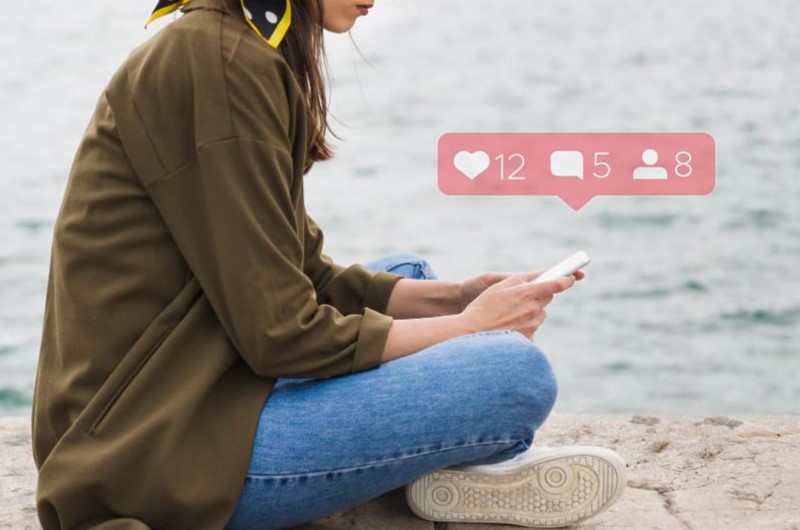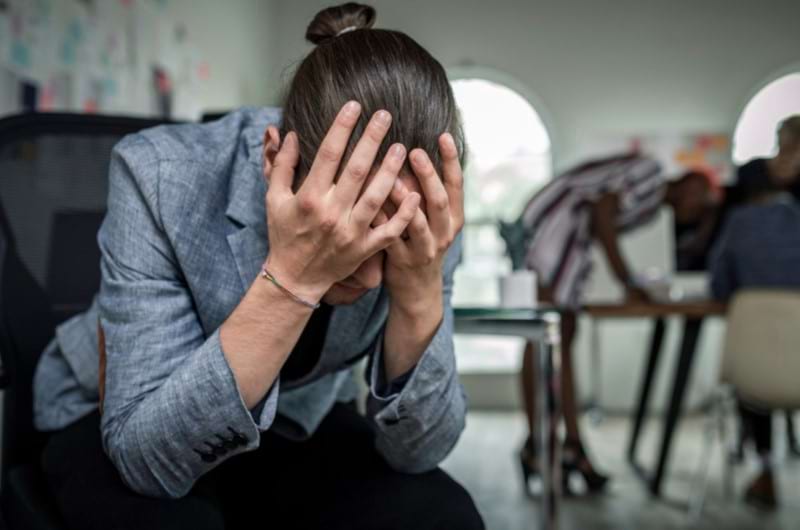Millennials navigate the fast-paced world of social interactions, and they compromise their mental health most of the time. Social media, jobs, personal life, or lifestyle have pushed them on the edge of anxiousness. Medication, meditation, exercise, real-world social interaction, traveling, and many other therapies can help you to overcome this social anxiety. If it persists, get professional help immediately, as mental health is the key to a healthy life.
In our current world, social anxiety is now commonplace. As the most anxious generation, millennials are not exempted from this struggle—they are seated right at the epicenter of it all.
Social anxiety doesn’t discriminate. It can affect anyone, regardless of their background or lifestyle.
However, statistics have proven that millennials struggle with social anxiety more than any other generation.
Recent statistics from the American Psychological Association show that 12% of millennials have a diagnosed anxiety disorder. That obviously cannot be compared to Generation Y or the Boomers.
This accounts for why psychologists describe millennials as the “burnout generation.” The generation is at the center of the pressure between the current and subsequent generations.
Clearly, we are approaching a speed-train evolution in the world of technology, and it is so holistic that nearly all areas of our lives are now driven by technology.
So, one of the many shocks millennials face is the reality of being greeted with a society where social interactions have extended beyond face-to-face encounters— it has become a must.
Understanding social anxiety in millennials
Millennials are people born between the early 1980s and the mid-1990s. It is the generation right in the middle of generations Y and Z.
Many health journals have cohesively described millennials as the “most anxious generation” so far.
So many factors influence social anxiety among millennials.
It could be the impact of social media, societal pressures, or even financial debts, and they all play significant roles in worsening these feelings of unease in social situations.
For instance, we can see that the constant exposure of millennials to psychologically and commercially curated images and lifestyles on social platforms often triggers perfectionism, comparison, and self-doubt.
This could end up increasing anxiety.
Meanwhile, social anxiety doesn’t just affect personal comfort; it spills into both professional and private spheres.
Just like other anxiety disorders, it can become severe enough to hinder a millennial’s ability to excel at work and engage meaningfully in social circles or life as a whole.
Does it end there?
Social anxiety can impede networking, public speaking, and collaboration in typical professional settings. This can eventually affect general career growth.
In personal life, social anxiety can limit the depth of relationships and the ability to partake in various social events. It can take the place of bonding and family time in extreme cases.
Does social anxiety in millennials have physical symptoms or manifestations?
Like in the case of a typical anxiety disorder, millennials experience a range of symptoms associated with social anxiety.
Some of them include increased heart rate, sweating, trembling, and a general pervasive fear of being judged.
In simpler terms, the most prominent cue that you are socially anxious is that deep fear of making decisions due to fear of being judged by the people around you.
It’s safe to say that chronic introversion and low self-esteem can pass as by-products of social anxiety.
These manifestations can impact the victim’s ability to socialize, engage, and contribute comfortably in various settings.
Understanding these contributing factors and symptoms is crucial in developing strategies to cope with and eventually overcome social anxiety.
But that brings us to the biggest question.
What causes social anxiety in millennials?
The causes of social anxiety can be multifaceted, mainly because people are unique.
Invariably, the list of causes is not exhaustive. However, four things have been noted as the most common causes of social anxiety in millennials.
1. Social media influence
Life has gone social in almost all angles.
The upsurge of social media platforms like Facebook, MySpace, Instagram, and TikTok has worsened the effect of social media on millennials in regard to social anxiety and the efforts to combat it.
The constant exposure of millennials to idealized lives on social platforms triggers comparison and self-doubt.
2. Pressure from society
So many expectations from society and peers create additional stress among millennials. This not only gets them stuck in a fit of constant self-devaluation but also amplifies their uneasiness in social situations.
In most cases, this leads to perfectionism. It creates the need for millennials to appear flawless and never be caught failing.
When these expectations are not met, anxiety sets in. The refusal to show up and speak up due to fear of being judged is what births social anxiety.
3. Financial debt
Financial stress sits on top of the most common causes of anxiety disorders.
Whether it is an unsettled education loan, healthcare costs, mortgage, or debt from friends and relatives, financial obligations are one of the reasons millennials experience social anxiety.
Financial insecurity brings a certain level of stress and anxiety that can quickly degenerate into social anxiety.
How do you manage or cope with social anxiety as a millennial?
Like other anxiety disorders, social anxiety can be managed effectively.
Recently, I encountered a video review of a vlogger who was facing depression, and she was expressing her state of mind and how she wanted to end her life.

There are many other stories of actors, bloggers, people in business, and even ordinary people, so if you feel someone is going through this phase of life, always try to help them; you can save a life this way.
It is a challenging process but can be easy if done correctly.
1. Get support from family and friends
Surround yourself with understanding and supportive friends or groups that can provide a safety net.
This will ease the fear of judgment and encourage you in social settings.
2. Meditation and exercise can be helpful
Engage in mindfulness exercises and prioritize self-care activities like yoga, meditation, or hobbies that can help reduce stress and promote a sense of calmness.
3. Curbing social media usage
Strike a balance between online interactions and in-person connections.
Make friends, spend quality time with people, and explore the world instead of limiting your life to social media.
Establish limits on screen time and set boundaries on social media use as well. Take regular breaks from technology.
Disconnecting from the extensive use of technology, even for short periods, can significantly reduce anxiety and restore a sense of balance.
4. Interaction with real-world people
Engage in face-to-face interactions. Participate In social events, clubs, or activities that allow for genuine, in-person connections and relationships.
FAQs
Can we overcome social anxiety without professional help?
You do not need professional assistance to cope with anxiety, and you can help yourself if it’s not that severe.
However, taking professional advice can increase the chances of quick and proper treatment.
How would I know if I need professional advice to cope with anxiety?
If anxiety interferes with your job, daily life, and relationships or causes general distress, you should seek professional support immediately.
How long does therapy or counseling take to improve or manage social anxiety?
There is no set time for the improvement. This is because duration varies from person to person according to their condition.
However, consistent engagement in therapy or counseling will always lead to gradual improvements in managing anxiety.
References
- https://www.millennialtherapy.com/anxiety-therapy-blog/millennial-anxiety
- https://acendahealth.org/impact-of-mental-health-for-millenials/
- https://pharmeasy.in/blog/millennials-and-anxiety-know-about-their-mental-health/
- https://qz.com/work/1483697/millennials-experience-work-disrupting-anxiety-at-twice-the-us-average-rate
- https://alisonshamir.com/gen-z-social-anxiety-triggers-imposter-syndrome/
- https://fortune.com/2023/10/06/gen-z-biggest-skills-gap-social-anxiety-work-managing-ambiguity-michelle-king/
- https://www.psychologytoday.com/us/blog/i-hear-you/201907/why-are-millennials-so-anxious-and-unhappy
- https://youngamericans.berkeley.edu/2019/11/the-anxious-generation/
- https://symptomsofliving.com/blog/are-we-the-generation-that-is-too-afraid-to-ask-for-ketchup
- https://www.theguardian.com/commentisfree/2016/mar/15/millennials-anxiety-generation-y-housing-careers


